At the age of 10, Laurie Friedman-Adler learned she was a terrible singer. But rather than let that stop her from pursuing the arts, it propelled her to pick up the clarinet—which she hasn’t put down for the past 50 years! Laurie’s love for the instrument has led her to study with musical greats, not to mention it has afforded her the opportunity to play in orchestras and ensembles throughout the country. Now she spends her time immersed in her music while also passing the art along to other aspiring musicians.
Laurie has found consistent inspiration to improve from her fellow musicians and colleagues, but it was really her mother who motivated her to go after her dream of becoming a performing instrumentalist herself. It was her mom who originally suggested the idea of playing the clarinet and who encouraged Laurie to take the plunge into the grueling world of music. Although the road leading to today was paved with more than a few obstacles, she has been able to make it through all of the practices and auditions and come out with a stronger sense of her abilities, her talent and her integrity, too.
As we got to know Laurie, we discovered that she has more than one outlet for her constantly flowing creativity. She makes sculptures, studies Native American music and language and always finds new inspiration in her day-to-day life. From teaching to thinking, Laurie is taking her musical success in stride, and sees it as the best possible way to fill her days with all of the things she enjoys most.
Her Starting Point
When did you first realize that you were passionate about music? How did you know you wanted to translate your passion into a career?
When you reflect back on one’s starting point in their career, the memories tend to be exaggerated, yet the realization of my passion for music came from an experience of disappointment and turned into sheer elation. I was 10 years old auditioning for the chorus in school and being very shy. My singing of the “Star Spangled Banner” came out as a cross between laughing hyenas and crying, howling dogs. Obviously, the chorus teacher didn’t know what to think—so he rejected me. Explaining this failure to my mom, she just told me to try and play a clarinet like Benny Goodman. With a letter from mom, I went to the music teacher and he gleefully handed me a clarinet (they must have needed clarinetists that year). After blowing some notes for everyone to hear in our kitchen and probably sounding awful, I experienced a feeling of utter joy. A few months later, the passion and love for the clarinet propelled me into the universal world of music. I never, ever wanted to stop.
What was it like being a full scholarship student of Leon Russianoff at Manhattan School of Music? What were some of the most valuable lessons you took away from that experience?
Mr. Leon Russianoff was an eccentric, creative, honest, engaging and mysterious character that had absolutely no set agenda on how to “teach” students. He understood that everyone was an individual with various anatomical and psychological variations. These differences were to be celebrated and elaborated on so one could reach their full potential on the clarinet.
In order to build the confidence needed to perform, he would dance around the studio to demonstrate the rhythmic pulse, take away the music you practiced for the whole week and give you brand new music to sight-read. You never knew what new and innovative theories of clarinet teaching he would pull out of his head to enable one to improve. I studied with Mr. Russianoff for six years and probably the most important lesson I took away was his fairness and integrity. Out of 70 students he taught weekly, I was one of only three female students. Equity and social justice were words he would never utter, but I now realize this was the lesson most valued.
What first steps did you take in establishing yourself as a musical artist? What, or who, inspired you to take the plunge and begin your career as a musician?
Studying to be a musician is a life-long endeavor. Acquiring the necessary technical and musical skills are only part of the essential ingredients needed to be a very good/great musician.
When I auditioned for the Blossom Music Festival with the Cleveland Orchestra, the seeds of a professional musician were planted. Musicians such as: John Mack, oboist with the orchestra, was determined to make me play with style and perfect my rhythm; Murray Sharpe, flutist, told inspirational stories that helped me with the internal, emotional playing, and Frank Cohen, clarinetist, insisted that I play out and never hide behind the clarinet. These musicians shaped my playing and inspired me. Yet, it was my mother lying in a hospital bed, sick with cancer, who made me realize dreams are made to be sought after and lived. You take the plunge, never let fear rule you and focus on practicing your skills.
What is it about the clarinet that first sparked your interest? What made you decide to study the instrument so closely?
There is something undeniably human about the production of sound emanating from a clarinet. The warmth of the timbre just captivated me every time I played and performed on the instrument. Not all performances have been “captivating,” but I had a sense that I was communicating my own voice through the instrument and it was so satisfying.
I realized early on about the amount of skill it would take to be able to “speak” through the clarinet. The more advanced you became, the more intimate the communication. What I treasured most were those intimate thoughts, only known by me, that were emotionally affecting the diverse audiences. Every nuance, every practical skill learned led you closer to the professional performances practiced by great musicians.
Her Big Break
You’ve held countless positions as a soloist—as part of an orchestra/ensemble and as a teacher. How did you go about landing those first few positions and getting your name out there? Did you face any initial challenges when trying to get the ball rolling?
The misconception about musicians is that all it takes is one big break and the sky is the limit. This was not true for me or for many of my wonderfully talented colleagues. There were lots of auditions—either behind the “screen” or playing a limited amount of concerts—to see if you could do the “job.” Some of the auditions went very well and I got the position, some went horribly wrong and I never got the position, yet some went great and I never heard back from them! It is a strange world of fate, luck, talent and perseverance to pursue a musical career, all the while understanding the flexibility involved.
In the beginning of my career, I was thankfully naïve about the amount of sexism in the field. I had some wonderfully equitable people help me, guide me and encourage me to live “in the meantime.”
As far as my career in teaching, I started teaching privately gaining valuable experience until I was able to understand the “art” of being a teacher. I went from small music schools to higher education where I teach today. Experience is the key to understanding the individual students and collaborating with colleagues to essentially gain global knowledge.
You’ve been teaching music for quite a while now. Did you find it difficult making the transition from student to teacher, or from musician to teacher? What do you find challenging about teaching, if anything?
When you are still a student teaching private lessons, your attitude does not match your teaching skills! Only when you have gained experience in both professional performance and teaching do you realize this is a life-long journey. Therefore, the transition from musician to educator was not seamless and required different skill sets to be successful.
Being a musical performer helps in the classroom while teaching helps one understand the analytical aspect of the music. Keeping students on task, engaged and diagnosing their individual problems are forever challenging. You have to differentiate your lessons for every student to correct and improve their playing. Performing and teaching are creative endeavors, each presenting challenges to overcome.
As a highly artistic individual, how do you make sure that the creative juices keep flowing? What inspires you on a day-to-day basis?
There is something intrinsic about being a creative individual. I find it difficult to “turn off” the ever-flowing ideas that keep occupying and filling up my head. My husband and my two wonderful children keep inspiring me to keep the life I lead going as I delve deeper into the creativity that is life.
Some of the inspiration for creativity comes from news stories, history (past and present), everyday living, family members who have passed on, people who comment about obscure things and just experiencing new places in the world where we have performed. Many of these ideas are expressed in my sculpture where I agonize about how to start carving these beautiful pieces of wood.
Over the years, you’ve received various grants from Hofstra University to fund your research on the Cherokee Native American Indian flute. How did you ultimately achieve these grants and what effect did this experience have on your career? What part does your research play in your career as a musician?
I usually equate grant writing to a dentist pulling out one of your teeth! It is very difficult to determine what exactly you want to achieve with the subject of your grant. The technical writing involved and the final creative idea, which captures the mind-set of the organization, is very difficult to determine.
Luckily, with influence and guidance from my husband’s passion for the Cherokee Native American Flute, I was able to come up with the idea of going to the Smokey Mountains of Tennessee to watch a brilliant artist make a magnificent flute from a large piece of barn wood. The second grant enabled me to introduce the history, culture and sound of the flute to audiences in the U.S. and Europe. A short lecture was done after our performances and questions were handed out to the audience. This collected data is still being analyzed.
This past year’s grant was extraordinary. I wanted to find out if learning/hearing the Cherokee language could possibly improve my playing on the Native flute. Mr. Edwin George, a full-blooded Cherokee Native, trusted me enough to explain the many cultural traditions associated with tribal life. All of this research presents me with a gift of cultural knowledge and continues to influence my performances.
Her Perspective
What do you find the most fulfilling about teaching? What are some pros and cons of the role?
When teaching, my hope is to ignite the desire for continued learning, for the student to go deeper into the subject and for my former students to come back and say “thank you” for that passion towards music.
Some of the cons of teaching are the inequity of the educational system throughout the country, especially in the arts. Also, realizing that you can’t solve all the problems or protect the students from negative influences.
The pros of teaching are many, but what is more important than teaching or being a teacher? You can mold students into a fine musician or just present them with the beauty that is music.
Of all your accomplishments, which would you say you’re the most proud of and why?
Giving birth to my two children. Music and art are a reflection of life, but giving birth to life feeds the art.
Why do you think it’s so important that the art community stays alive and active in this day and age? What do you think art offers us as humans that other disciplines may not?
I get so tired defending why the creative fine arts should be supported by the whole society, not thrown to the whims of very financially well-off individuals. Case after case, science has informed us that the arts are important for the health of the brain, psychological improvements, social adjustments, cultural understanding, the creation of new neural pathways, etc.
As the New York Times stated in one of their many articles on the brain, “playing written music is the most powerful way to integrate the left and right side of your brain.” With all of this information out there to read and digest, why do they keep slashing arts programs in schools, lowering the number of musicians in orchestras, and why are board members continually not understanding the needs of musicians/artists in major organizations?
The arts are the antidote for the abnormal attachment to technological gadgets. Technology enables a collaborative community to effectively use these tools to garner research, communication and learning. The arts are one of the few pathways for humans to get closer to the “thoughts” of the creator or spirits.
And finally, what do you wake up looking forward to? What’s next for your career?
I look forward to waking up and doing what I do all the time—play music, teach music, sculpt, create, think, love, speak with my children and friends, discussions with my husband, sharing conceptual insights with my colleagues and, most important, to understand that sometimes you have no control over what comes next.
You May Also Like
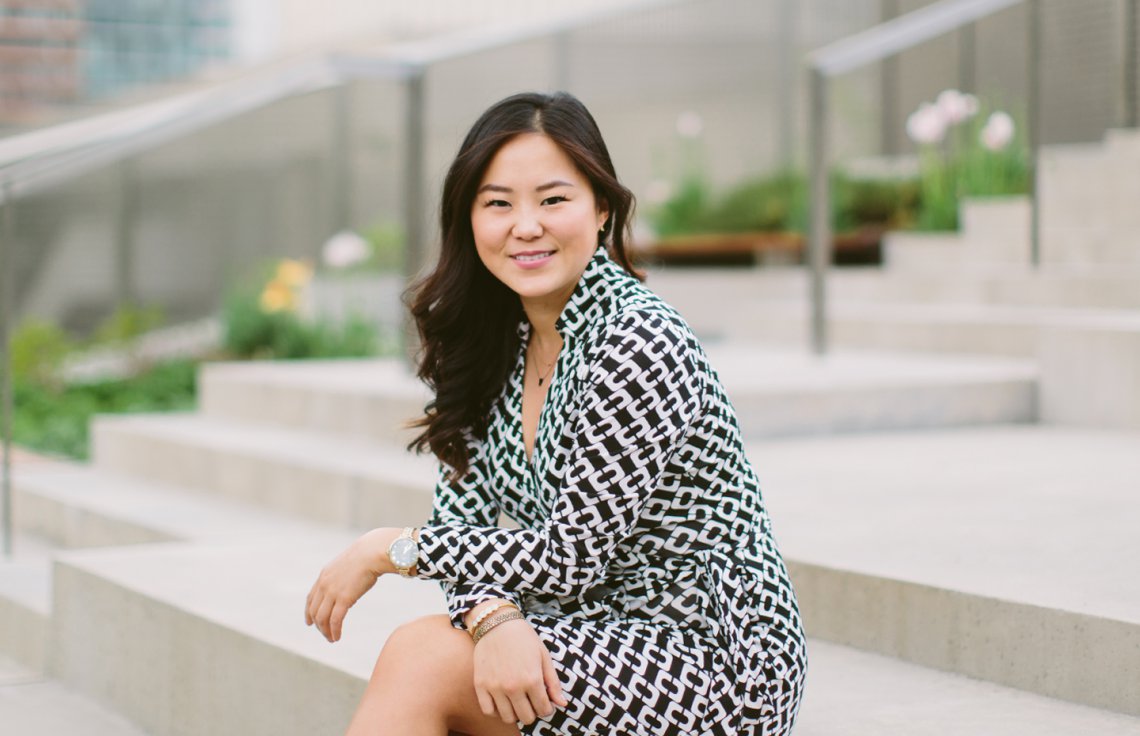
Government + Public Policy
How to Become a Foreign Service Officer
Ever wondered what it would be like to work in Foreign Affairs? Gloria Chou knows, and she's spilling.

Government + Public Policy
Noor Elkhaldi on Taking a Break From School to Work as an SVU Counselor
"You cannot care for others if you do not care for yourself."
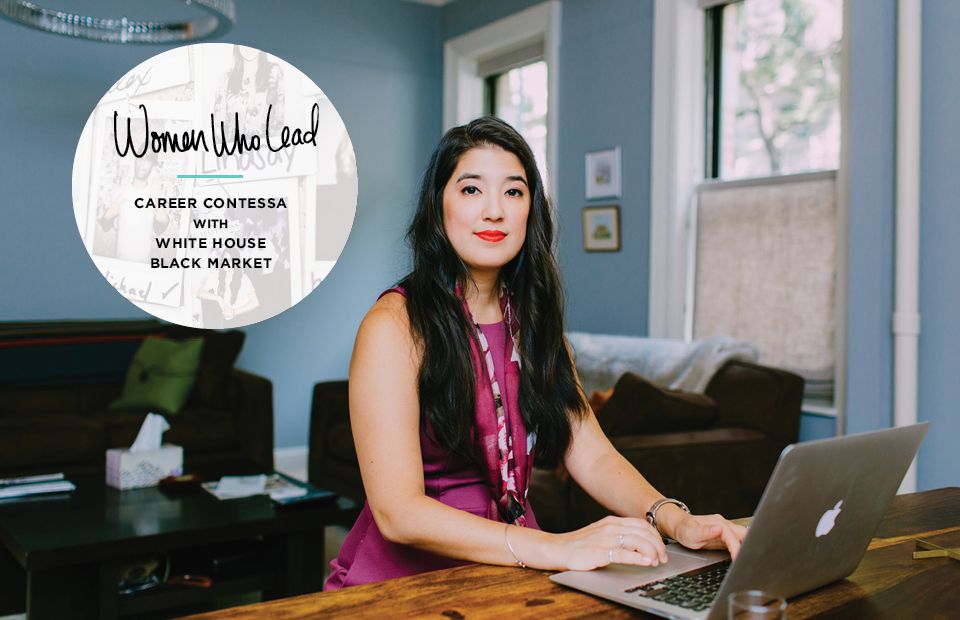
Consumer Services, Education, Finance
Women Who Lead: Alexandra Dickinson, Founder and CEO of Ask For It
On taking risks and asking for more—always.
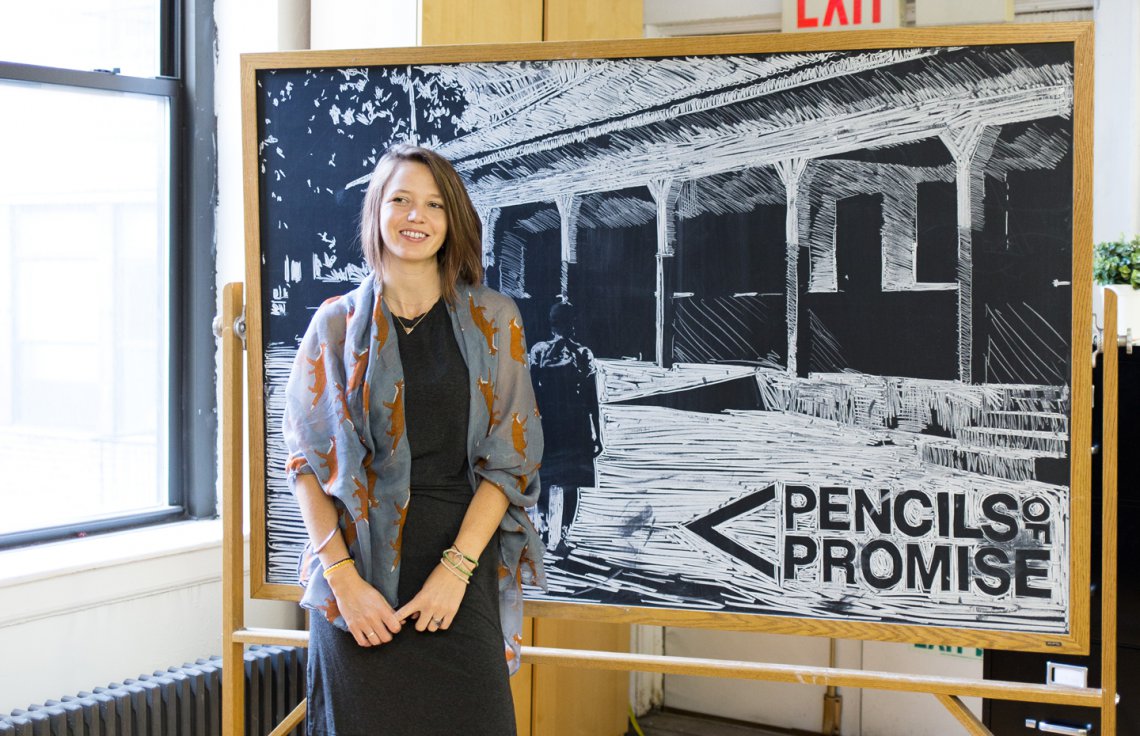
Nonprofit, Social Responsibility
Leslie Engle Young on What a Director of Impact Actually Does
This philanthropic globetrotter found her dream career working at Pencils of Promise.
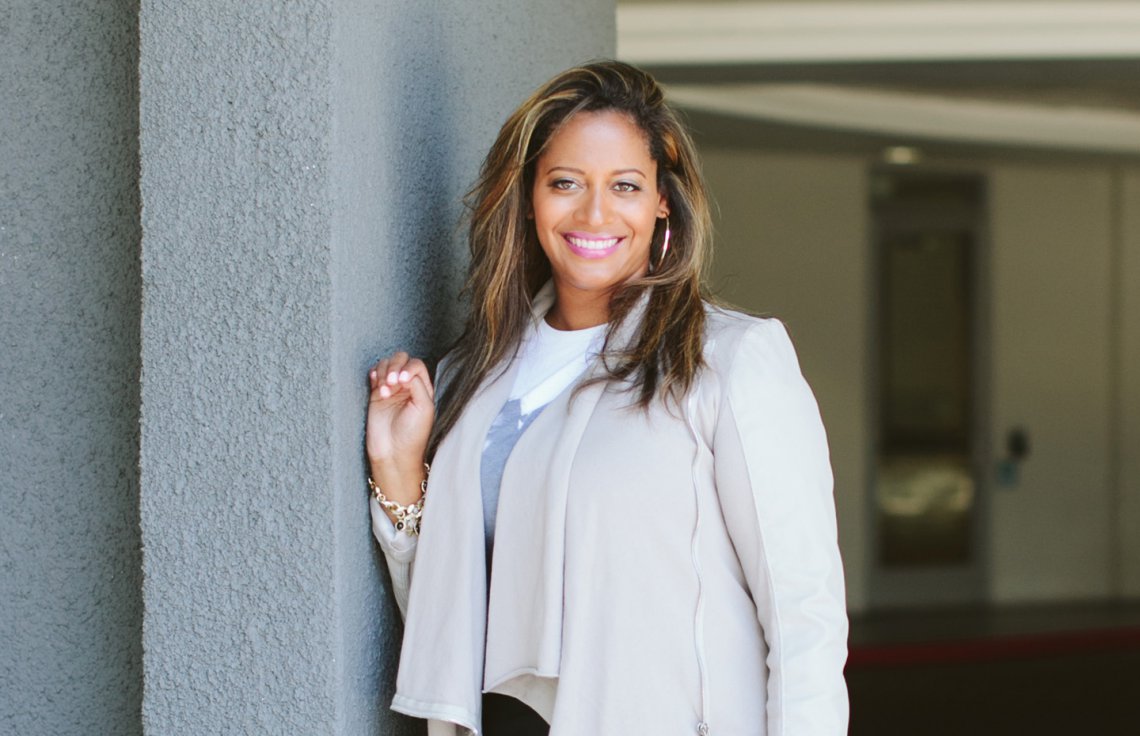
Entertainment, Government + Public Policy
Meet the Woman Behind Your Favorite T.V.
See how Candace's legal background has helped her climb the ladder to a director role at Sony Pictures.
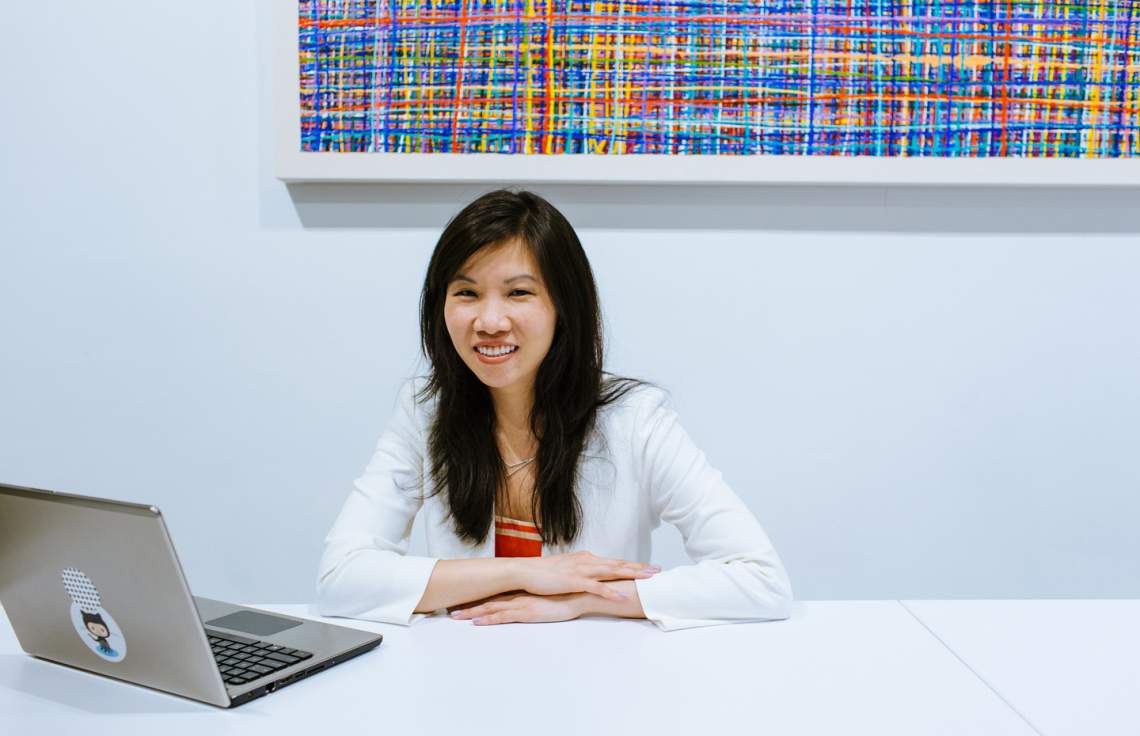
Government + Public Policy
This Millennial Entrepreneur Talks Politics, Activism, and...How to Vote?
Election season's almost over, but Maria Yuan's company, IssueVoter, is just getting started.
Get the Best Career Advice Delivered To Your Inbox
Join our newsletter to stay in the loop.
